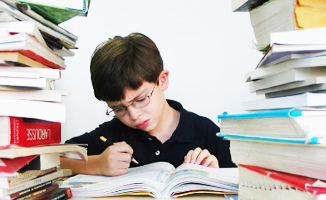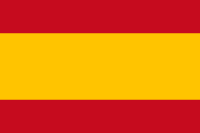Parenting is a tough job. It’s hard enough when things are going well imagine trying to parent while experiencing chronic pain. One mother with chronic pain, Sarah Erdreich, described her experiences with parenting her two-year-old daughter in a recent Slate article [1]. She described her worries about how her pain might affect her daughter, and the difficulties she faces in her daily life. “I can’t dress her by myself, or tie her shoes… but all that feels like mere window dressing for what I really can’t do: feel at all confident that I can take care of my child alone for more than an hour” explain this mother.
Others specializes have published children’s books to help children understand and cope with their parents’ chronic pain (e.g., Why Does Mommy Hurt? by Elizabeth M. Christy [2]). Understanding how children are affected by a parent’s chronic pain is clearly an important issue that many people are concerned about. What does the research say about this topic?
Our team based in the Centre for Pediatric Pain Research (IWK Health Centre, Halifax, NS, Canada) recently published a paper in PAIN [3] where we reviewed and synthesized the results of research looking at pain, physical and psychological health, and family functioning in offspring (newborns through adulthood) of parents with chronic pain as compared to offspring whose parents do not have chronic pain. One unique aspect of this review is the fact that we used a mixed-methods approach, including both quantitative and qualitative studies (59 relevant studies in total).
When we looked at studies that used quantitative methods (i.e. those using numerical data and statistics), we found that, overall, the offspring of parents with chronic pain had poorer outcomes than offspring of parents without chronic pain in a number of areas. They were more likely to have their own problems with pain, whether their mother, father, or both parents had chronic pain. We did not find a difference in the odds of offspring having pain based on whether it was the mother or father who had chronic pain. Newborns whose mothers had chronic pain were more likely to have a number of adverse outcomes than newborns whose mothers did not have chronic pain (e.g., low birthweight, admission to neonatal intensive care). In terms of psychological health, we found that offspring of parents with chronic pain tended to have more internalizing problems (e.g., anxiety, depression), more externalizing problems, and poorer social skills compared to offspring of parents without chronic pain. In terms of family functioning, parents reported that family functioning was poorer in families dealing with chronic pain as compared to families where the parents did not have chronic pain.
When we looked at the three qualitative studies that were included in our review, we found slightly different results. In these studies, children and adolescents were interviewed about their experiences with their parents’ chronic pain and had more choice in the topics they could bring up. There were six key concepts that were discussed in each of the three studies: development of independence at an early age, development of compassion and empathy, learning about health and coping, missing out on aspects of normal childhood/adolescence, effects on emotional health, and struggles communicating with parents. While some of these key concepts described negative effects of having a parent with chronic pain (e.g., missing out on parts of a normal childhood), the children and adolescents in these studies also noted some more positive aspects of having a parent with chronic pain (e.g., developing more compassion and understanding for other people dealing with difficult circumstances). While the quantitative articles had focused mainly on outcomes that were worse in the offspring of parents with chronic pain, the qualitative studies included more positive or constructive effects as well.
Overall, these results suggest that offspring whose parents have chronic pain do have poorer outcomes in a number of areas (pain, physical health, psychological health, family functioning) compared to offspring whose parents do not have chronic pain. However, this is not true for all outcomes, and there is some evidence that positive or constructive aspects of having a parent with chronic pain occur as well.
So far in this area of research, we have focused on comparing groups of offspring whose parents do and do not have chronic pain. However, we do not yet understand the factors that predict which offspring whose parents have chronic pain are most at risk for difficulties, and which might be protected from those effects. A more resilience-focused approach, such as investigating factors that might help offspring of parents with chronic pain to have better outcomes, would be helpful in determining how we can help these offspring to thrive. Resilience models have been developed for chronic pain in adults [4] and children [5], and could be adapted for offspring of parents with chronic pain as well.
As we learn more about how to support parents with chronic pain and their children, we can study interventions that can help these families. For example, while many adults with chronic pain receive helpful information from pain self-management groups, these groups rarely include information about how to talk their children about pain. Developing and testing such interventions could help parents with chronic pain and their children to have the best possible outcomes as they move forward.
About Kristen Higgins. She is Pediatric Pain Research. Kristen Higgins is a fourth year Clinical Psychology PhD student at Dalhousie University in Halifax, Nova Scotia, Canada. Her research is supervised by Dr. Christine Chambers at the Centre for Pediatric Pain Research at the IWK Health Centre. Kristen is supported by a CIHR Doctoral Research Award and an honorary Nova Scotia Health Research Foundation Scotia Scholar Award. Kristen is a member of Pain in Child Health: A Strategic Training Initiative of CIHR. She received her BSc (Honours) in Psychology from Acadia University in 2012.
References
[1] Erdreich, S. (2015, January 2). Parenting with chronic pain. Slate. Retrieved from http://www.slate.com/articles/life/family/2015/01/parenting_with_chronic_pain.html
[2] Christy, E. M. (2014). Why Does Mommy Hurt? Helping children cope with the challenges of having a caregiver with chronic pain, fibromyalgia, or autoimmune disease. Denver, CO: Outskirts Press.
[3] Higgins, K. S., Birnie, K. A., Chambers, C. T., Wilson, A. C., Caes, L., Clark, A. J., Lynch, M., Stinson, J., & Campbell-Yeo, M. (2015). Offspring of parents with chronic pain: A systematic review and meta-analysis of pain, health, psychological, and family outcomes. PAIN, 156, 2256-2266. doi: 10.1097/j.pain.0000000000000293
[4] Sturgeon, J., & Zautra, A. (2010). Resilience: A new paradigm for adaptation to chronic pain. Current Pain and Headache Report, 14, 105-112. doi: 10.1007/s11916-010-0095-9
[5] Cousins, L. A., Kalapurakkel, L., Cohen, L. L., & Simons, L. E. (2015). Topical review: Resilience resources and mechanisms in pediatric chronic pain. Journal of Pediatric Psychology, 40, 840-845. doi: 10.1093/jpepsy/jsv037
SOURCE: UNIVERSITY OF SOUTH AUSTRALIA.




